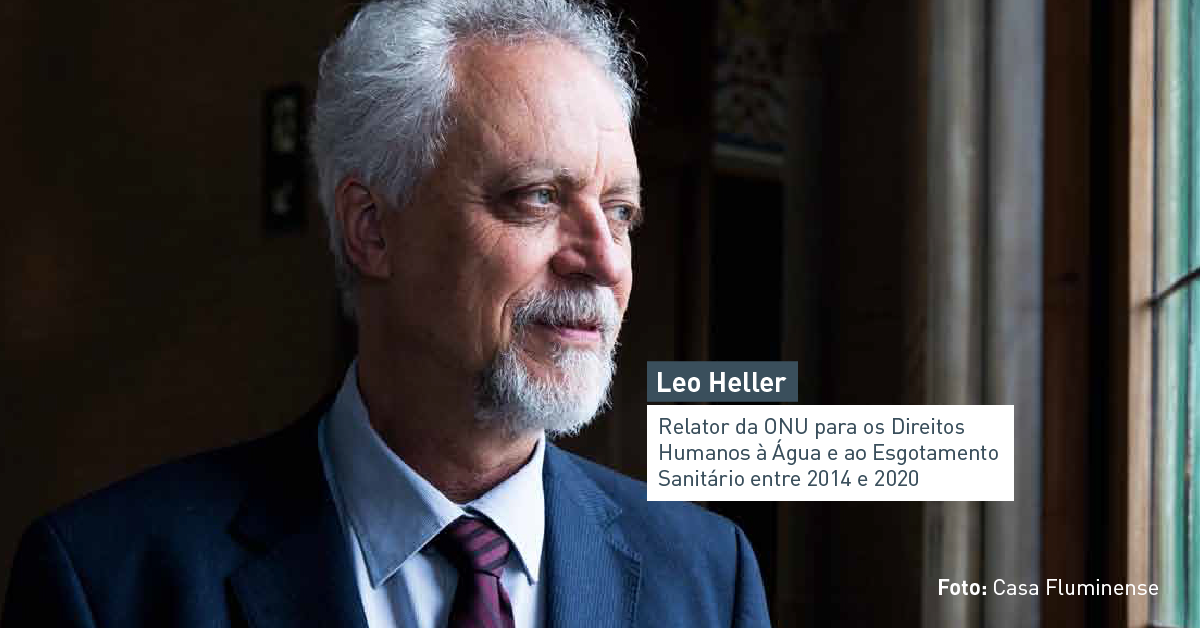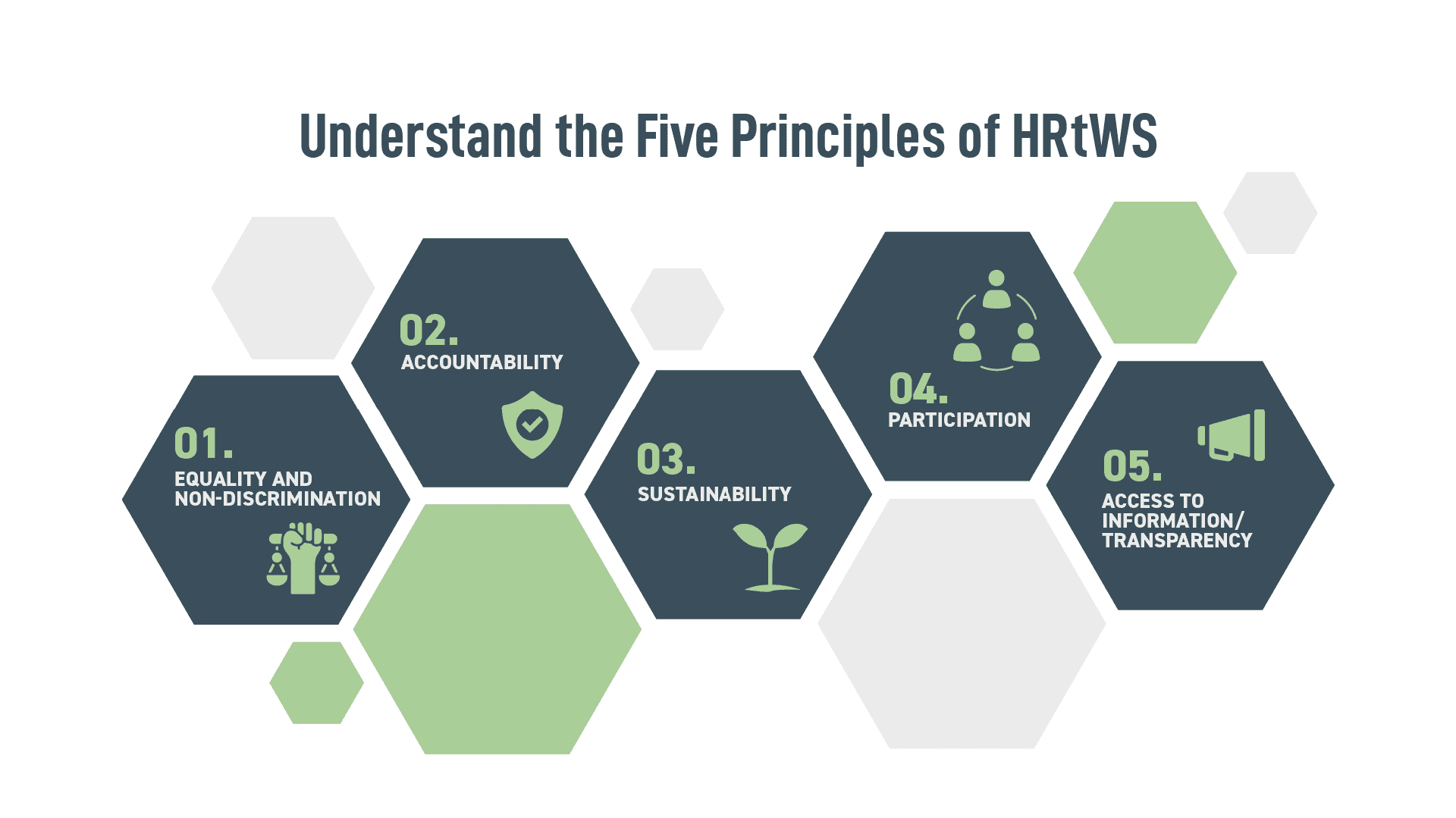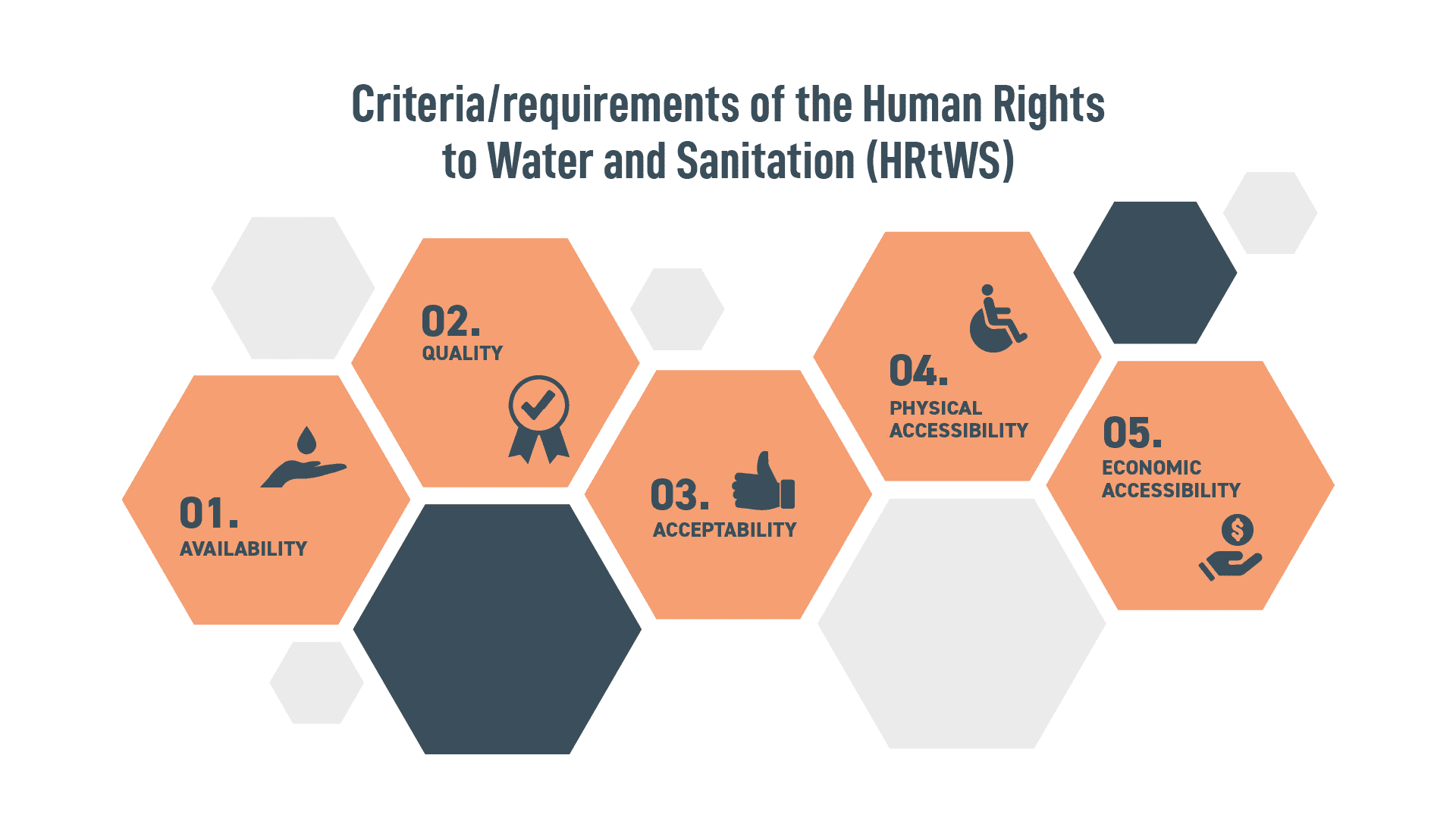Sanitation: a human right far from being guaranteed to all.
Published in 21 Jul 2022
Written by By the IAS team
Tags:

Em 2015, o Conselho de Direitos Humanos da ONU reconheceu os direitos à água e ao esgotamento sanitário (DHAES) como distintos ((Resolution A/RES/70/169))This was a major step for access to sanitation to stop being placed on the back burner when compared to policies aimed at access to drinking water
Brazilian Léo Heller was the UN Special Rapporteur on HRtWS (2014-2020) at the time. The newly created position was first held by Portuguese jurist Catarina de Albuquerque (2008-2014).
During an interview with the Executive Director of the IAS, Marussia Whately, Heller highlights the need to discuss human rights targets and indicators, and the importance of addressing inequalities to ensure universal access to sanitation and toilets.
His professional career overlaps with an involvement in politics, which began when he was a student. He graduated in civil engineering in 1977 from the Federal University of Minas Gerais (UFMG), where he also obtained a Master's in Sanitation, Environment and Water Resources. Heller also holds a Ph.D. in Epidemiology from the Veterinary School of UFMG and pursued post-doctoral studies at the University of Oxford
He has been awarded an Honorary Doctorate degree by the University of Newcastle and has been a researcher at the René Rachou Institute (Fiocruz Minas) since 2014. His scientific production includes about a hundred publications in the form of books, articles in journals, and participation in events.
50% of the population does not have access to adequate sanitation
Heller finds it unacceptable that half of the population in the world and in Brazil does not have access to safely managed sanitation. "It is like bringing the 19th century to the 21st century". Around 107 million Brazilians do not have access to adequate sewage services, according to the 2017 National Basic Sanitation Plan (Plansab), which states that 86 million people have poor access to water.
Heller explains that the greatest deficit in sewage services when compared to water has led the United Nations Human Rights Council to recognize these rights as separate, albeit integrated. “Recognizing them as separate rights means that it is possible to explore the idea of the right to sanitation (sewage treatment) on a stand-alone basis, not necessarily linked to the right to water”
Neglected vulnerable populations
Heller points out that access to a toilet and the human right to sanitation are pretty much intertwined, which is why this topic must be seen through the lens of human rights. “It is very important to identify the people who do not have a toilet. The issue of public toilets, for example, is an overlooked area, invisible to administrators, and the homeless population in many parts of the world is very large and has grown significantly against the backdrop of the pandemic. This population rarely has access to adequate public toilets.”
Another point worthy of attention is the matter of gender in the access to washrooms. “We must not overlook transgender people and their need to have access to washrooms that respect their identity and sexual orientation. This is a topic that calls for a lot of attention from human rights: how to ensure that these people can use washrooms without being subjected to harassment, discrimination and violence”. Heller discussed this topic in the countries he visited as a UN Special Rapporteur.
The lack of sewage treatment services has further implications for life, human dignity, health and gender equality. “When there are no toilets or adequate sanitation services, women and girls pay a much higher price in terms of their safety, dignity and privacy,” he explains.
“Having access to sanitation that complies with human right requirements means having access to facilities that are available and accessible to all, regardless of their age, sexual orientation, migration status, whether they live in an informal settlement, a rural area, or have a physical disability. This access must be guaranteed for all.”
Clique na imagem a seguir para conhecer os cinco princípios dos Direitos Humanos à Água e ao Esgotamento Sanitário:
The Human Rights to Water and Sanitation in Practice
Como saber se os direitos humanos à água e ao esgotamento sanitário estão sendo respeitados? O ex-relator explicou que o acesso à água deve ser contínuo, com quantidade suficiente para os usos pessoais e domésticos (beber e cozinhar, lavar roupa, disposição dos dejetos e higiene pessoal e doméstica). A água precisa também ser adequada para consumo e outros usos. Já o esgotamento sanitário deve ser seguro do ponto de vista higiênico e técnico. Para a higiene, é essencial ter acesso à água para a limpeza e a lavagem das mãos.
In addition, facilities must be culturally acceptable, taking into consideration gender specificities in terms of privacy, safety and dignity. “The facilities must be compatible with traditions: of the individuals, where they live, or the peoples to which they belong. Water facilities and services must be available for use within reach of the entire population”, he explains.
O abastecimento deve ser suficiente, seguro, aceitável e acessível nas proximidades dos domicílios, escolas, centros de saúde e outras instituições e lugares públicos. A segurança física, especialmente das mulheres e crianças, deve ser assegurada durante o acesso aos serviços, que precisam contar com instalações apropriadas. Serviços e instalações de água devem estar ao alcance de todos, todas e todes, com custos e encargos diretos e indiretos acessíveis, sem comprometer o exercício de outros direitos humanos. “Ninguém deve ser privado do acesso aos serviços por não ter capacidade econômica de pagar uma tarifa ou de arcar com os custos, por exemplo”, finaliza.
Clique na imagem a seguir para conhecer os critérios dos Direitos Humanos à Água e ao Esgotamento Sanitário:
According to Léo Heller, in addition to the five HRtWS criteria, when it comes to the right to sanitation, privacy and dignity also come into play. “In addition to the normative content, the principles of human rights are used: equality, free and meaningful active participation, access to information, and progressive realization”
No government is required to move from a rate of 30% to 100% overnight as it is understood that a planning period is necessary; on the other hand, setbacks are not accepted. “Countries that have cut down on their investments, reduced the percentage of people with access, or, in other words, failed to keep up with demographic growth, or countries which disconnect people who cannot pay for the services can be classified as violators of human rights
Watch the full interview below:
This content is part of a series of interviews conducted with the UN Special Rapporteurs on the Human Rights to Water and Sanitation. See also the note on the interview with Catarina de Albuquerque, rapporteur from 2008 to 2014. Coming up is a conversation with Pedro Arrojo, Spanish researcher and current UN Special Rapporteur on the Human Rights to Water and Sanitation.




